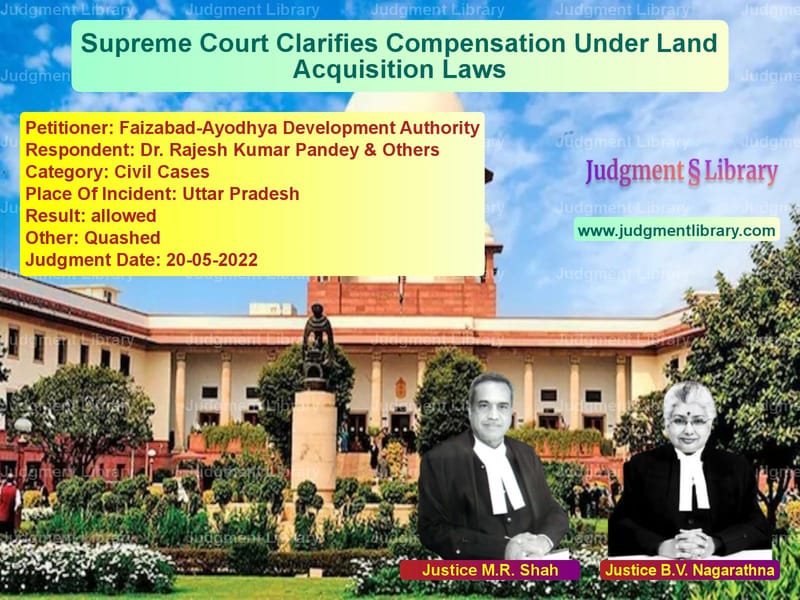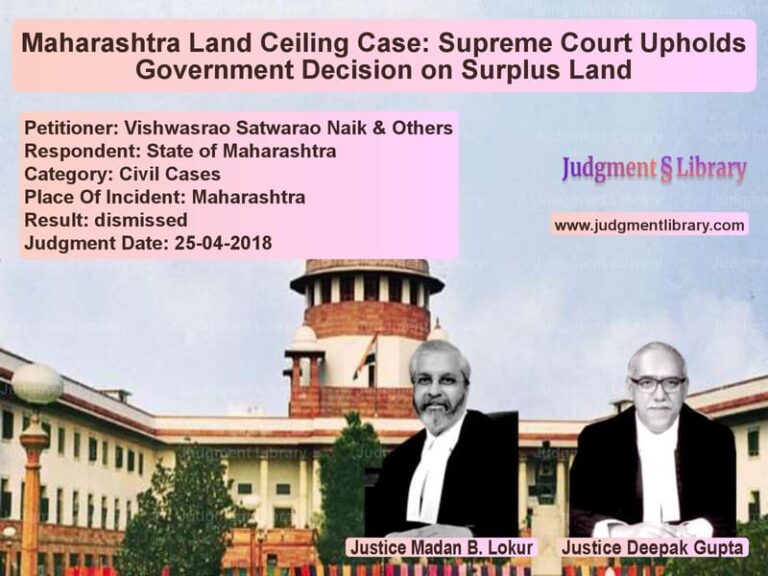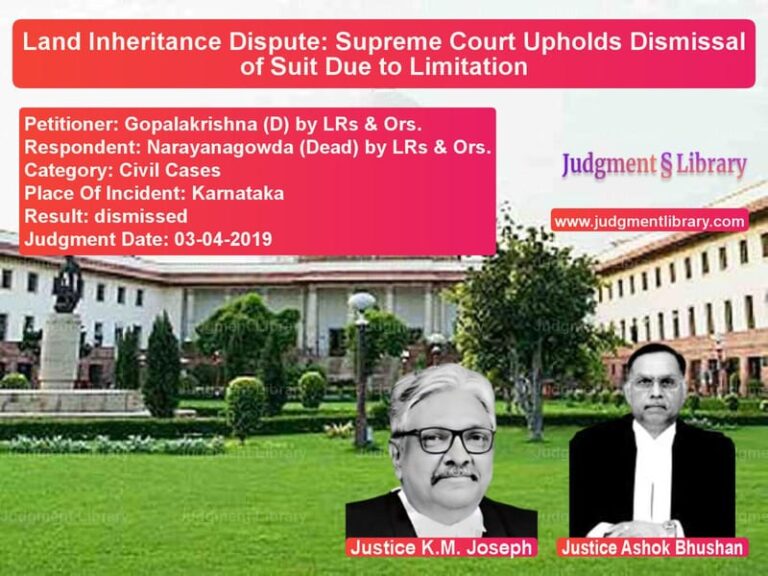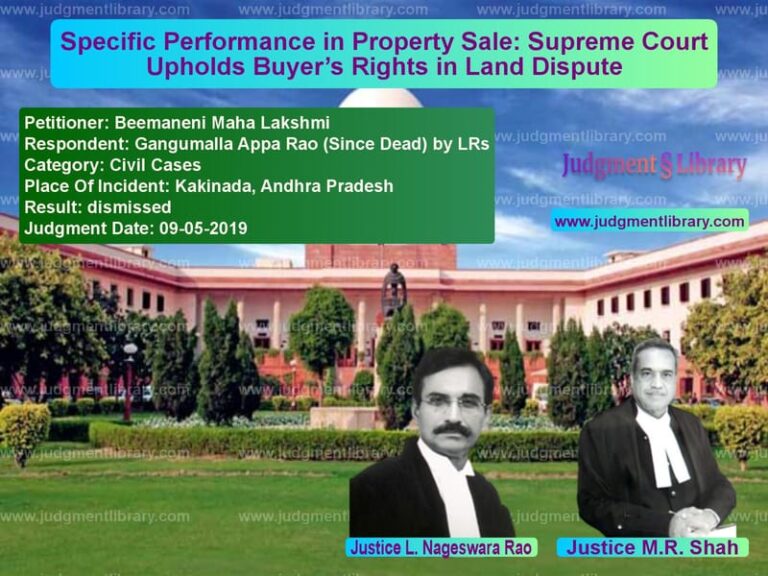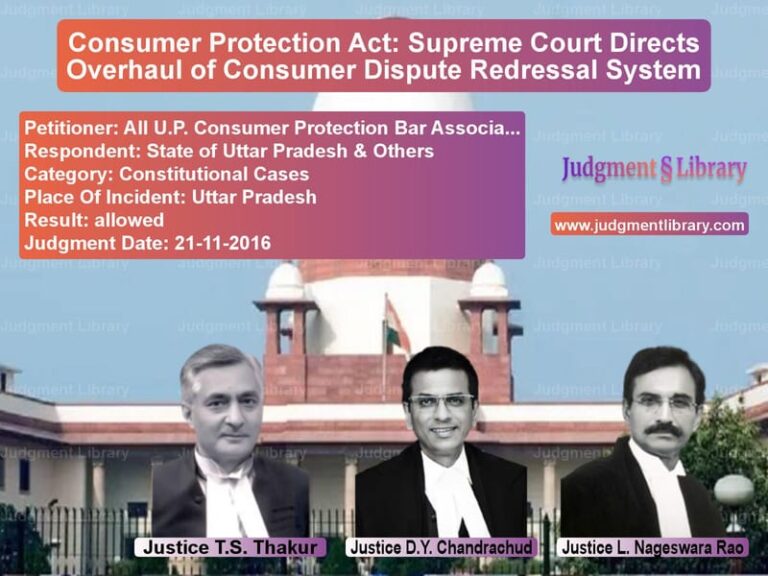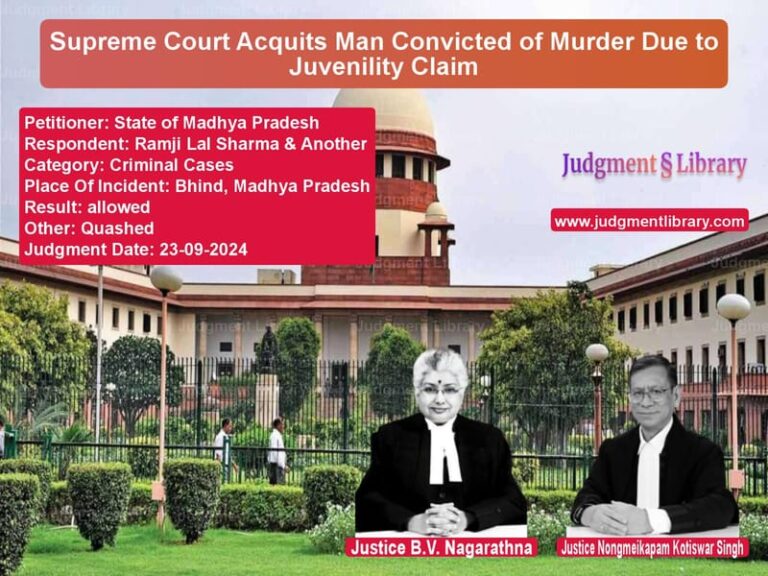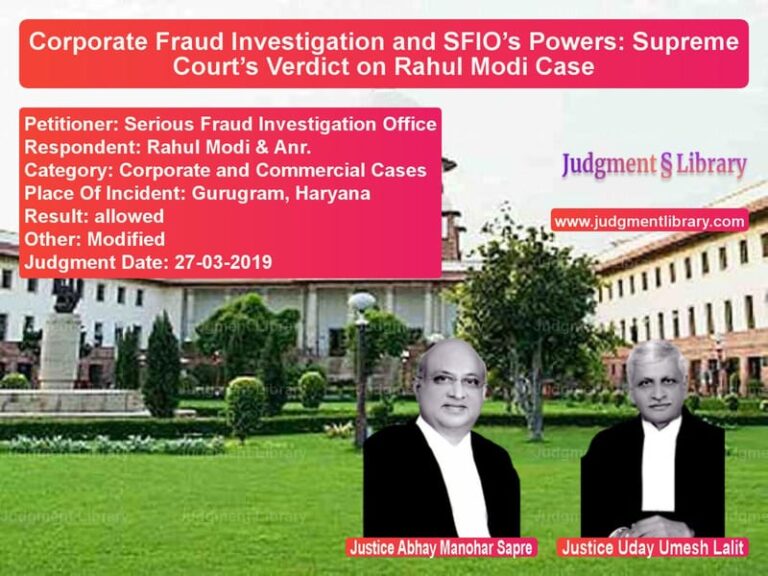Supreme Court Clarifies Compensation Under Land Acquisition Laws
The Supreme Court of India in Faizabad-Ayodhya Development Authority v. Dr. Rajesh Kumar Pandey & Others and connected cases addressed a crucial issue related to land acquisition compensation under the Right to Fair Compensation and Transparency in Land Acquisition, Rehabilitation and Resettlement Act, 2013 (hereinafter referred to as the “2013 Act”). The judgment focuses on whether landowners who obtained interim stays in court, preventing the declaration of an award under the Land Acquisition Act, 1894 (hereinafter referred to as the “1894 Act”), are entitled to higher compensation under the 2013 Act.
Background of the Case
The dispute arose from land acquisitions initiated by development authorities in Faizabad and Moradabad, Uttar Pradesh, for residential and public projects. In several instances, landowners challenged these acquisitions in court and secured interim stays, thereby halting the declaration of awards under the 1894 Act.
As a result, when the 2013 Act came into force on January 1, 2014, the awards had not been declared due to the pending litigations. The High Court of Allahabad ruled in favor of the landowners, directing the authorities to compensate them under the more favorable provisions of the 2013 Act. The development authorities appealed to the Supreme Court.
Arguments by the Appellants (Development Authorities)
The development authorities, represented by Senior Advocate V.K. Shukla, argued:
- The delay in declaring the awards under Section 11 of the 1894 Act was not due to inaction but was caused by interim orders granted by the High Court.
- The authorities had deposited compensation amounts and taken steps towards acquisition, but judicial stays prevented further action.
- As per the ruling in Indore Development Authority v. Manoharlal, the period of an interim stay must be excluded when determining whether an award had been passed within the required time.
- Allowing landowners who had challenged acquisitions to benefit from the 2013 Act would result in an unfair advantage over other landowners whose compensation was determined under the 1894 Act.
Arguments by the Respondents (Landowners)
The landowners, represented by Senior Advocate S.R. Singh, contended:
- Since no awards had been declared under Section 11 of the 1894 Act by January 1, 2014, Section 24(1) of the 2013 Act mandated that compensation be determined under the new law.
- There was no explicit provision in the 2013 Act excluding the period of interim stays when determining compensation eligibility.
- The High Court correctly interpreted the law and provided relief to landowners whose land was acquired but who had not yet received compensation.
Supreme Court’s Observations
The Bench, comprising Justice M.R. Shah and Justice B.V. Nagarathna, analyzed the issue in light of previous rulings, particularly the Constitution Bench judgment in Indore Development Authority v. Manoharlal (2020).
The Court made the following key observations:
- The intent of Section 24(1) of the 2013 Act is to protect landowners whose awards were unduly delayed due to administrative lethargy, not those who actively prevented the process by obtaining judicial stays.
- If an award could not be passed due to a court order, the period of such an order must be excluded when determining eligibility for compensation under the 2013 Act.
- Allowing litigating landowners to benefit from their own delay tactics would be unjust and discriminatory against other landowners who did not challenge the acquisition.
- Restitutionary principles apply, meaning a party cannot benefit from an action that it initiated to delay the process.
- The authorities were not at fault for failing to declare awards in these cases, as they were legally restrained from doing so.
Final Judgment
The Supreme Court ruled in favor of the development authorities and set aside the High Court’s decision. The Court held:
- Landowners who obtained judicial stays, preventing the declaration of awards, cannot claim compensation under the 2013 Act.
- The relevant authorities must declare awards under the 1894 Act and compensate landowners accordingly.
- Landowners dissatisfied with the compensation may seek legal remedies under the 1894 Act.
Implications of the Judgment
This ruling clarifies the applicability of the 2013 Act and establishes that:
- Litigants who secure stays on land acquisition cannot later claim higher compensation due to delays caused by their own legal challenges.
- The period of a judicial stay must be excluded when determining whether an award was passed within the required timeframe.
- Authorities are not penalized for judicially-imposed delays, and compensation should be determined based on the law applicable at the time of acquisition.
This decision has significant implications for land acquisition cases, ensuring that judicial interventions do not create unfair advantages for certain landowners while protecting the broader interests of public infrastructure projects.
Petitioner Name: Faizabad-Ayodhya Development Authority.Respondent Name: Dr. Rajesh Kumar Pandey & Others.Judgment By: Justice M.R. Shah, Justice B.V. Nagarathna.Place Of Incident: Uttar Pradesh.Judgment Date: 20-05-2022.
Don’t miss out on the full details! Download the complete judgment in PDF format below and gain valuable insights instantly!
Download Judgment: faizabad-ayodhya-dev-vs-dr.-rajesh-kumar-pan-supreme-court-of-india-judgment-dated-20-05-2022.pdf
Directly Download Judgment: Directly download this Judgment
See all petitions in Property Disputes
See all petitions in Landlord-Tenant Disputes
See all petitions in Damages and Compensation
See all petitions in Public Interest Litigation
See all petitions in Other Cases
See all petitions in Judgment by Mukeshkumar Rasikbhai Shah
See all petitions in Judgment by B.V. Nagarathna
See all petitions in allowed
See all petitions in Quashed
See all petitions in supreme court of India judgments May 2022
See all petitions in 2022 judgments
See all posts in Civil Cases Category
See all allowed petitions in Civil Cases Category
See all Dismissed petitions in Civil Cases Category
See all partially allowed petitions in Civil Cases Category

